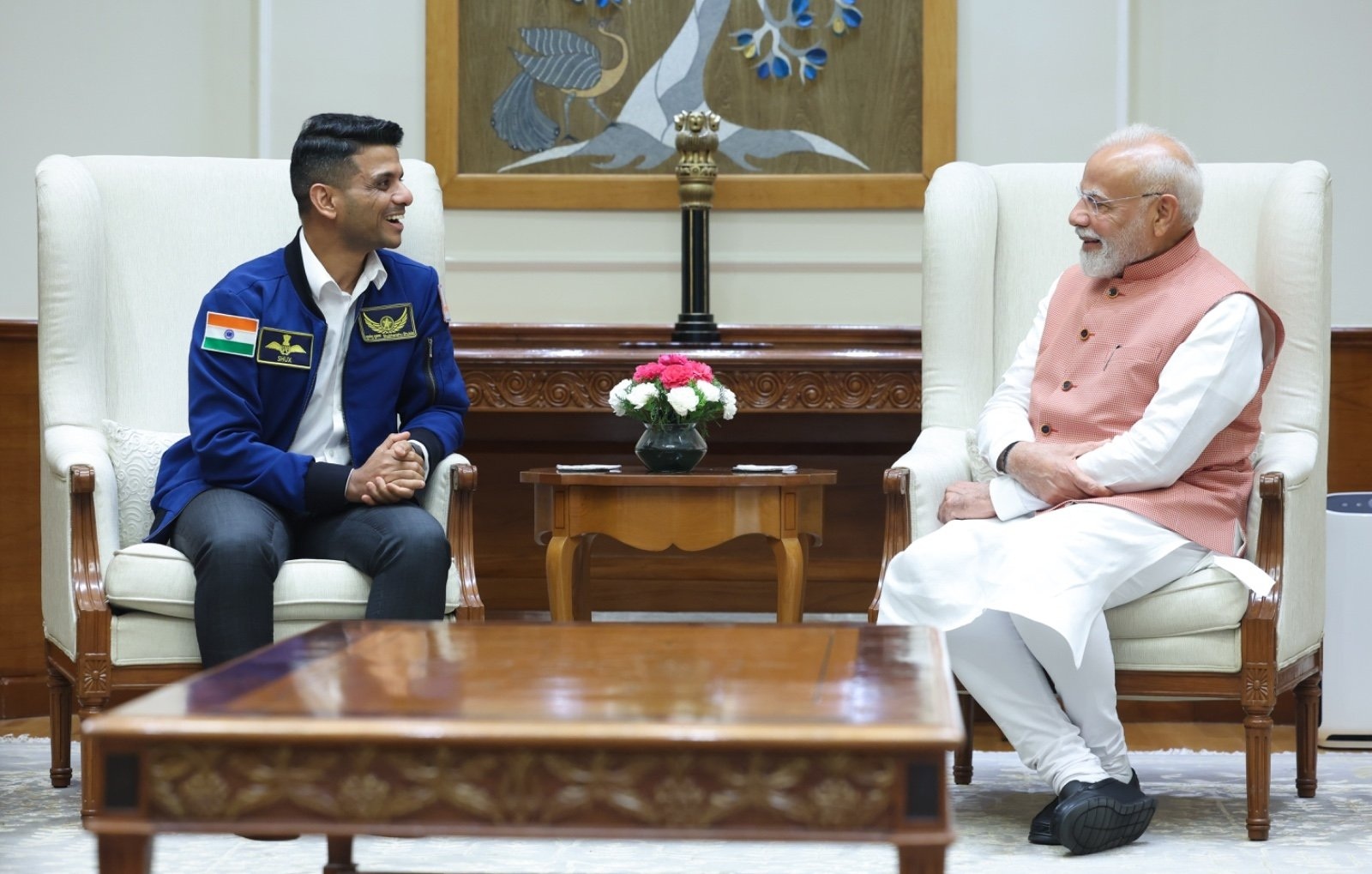Prime Minister Narendra Modi on Monday interacted with astronaut Shubhanshu Shukla in New Delhi, calling his recent journey into space “the first step” in India’s long-term space ambitions. The Prime Minister underlined that India’s path to success lies in pursuing its space goals with Atmanirbharta (self-reliance) and stressed the need to build a pool of 40–50 ready astronauts for future missions.
PM Modi sought insights into the transformative experience of space travel. Shukla explained that the absence of gravity creates distinct physical and psychological changes, with the body requiring four to five days to acclimatize in space and similar time to readjust upon return to Earth. He recounted stumbling during his first steps back on Earth despite feeling physically fit. The Prime Minister observed that space travel demands not only physical but also mental conditioning, which Shukla agreed was crucial.
PM Modi asked about life aboard the capsule, with Shukla confirming that while space was limited, the capsule was more comfortable than a fighter jet cockpit. He added that astronauts could unfasten themselves once in orbit and move freely within the module.
The astronaut also spoke about experiments conducted aboard the space station, including growing moong and methi sprouts in microgravity using minimal resources. He emphasized the potential of such agricultural innovations in addressing both space nutrition challenges and food security on Earth.
Reflecting on international responses, Shukla said astronauts from other countries were enthusiastic about India’s progress and particularly curious about the upcoming Gaganyaan mission. Many expressed eagerness to witness India’s next launch.
Shukla humbly dismissed being called a “genius,” attributing his achievements to rigorous training in the Indian Air Force and as a space pilot. He likened becoming a space pilot to mastering engineering, involving years of study and preparation under Indian scientists.
PM Modi reiterated that India’s next strategic space goals include establishing a space station and advancing the Gaganyaan mission. Shukla stressed that despite past setbacks, the government’s consistent support, including after Chandrayaan-2, had led to breakthroughs such as Chandrayaan-3. He said India now has the potential to assume a leadership role in the global space domain.
Shukla recalled how, unlike in his childhood after Rakesh Sharma’s mission in 1984, today’s children actively ask how they too can become astronauts. He called this change one of the mission’s biggest successes, noting that Indians now see spaceflight not as a distant dream but as an achievable goal.
The Prime Minister affirmed that India’s vision for Gaganyaan, the space station, and even a future moon landing are part of a larger dream—and if pursued with Atmanirbharta, success is inevitable.














